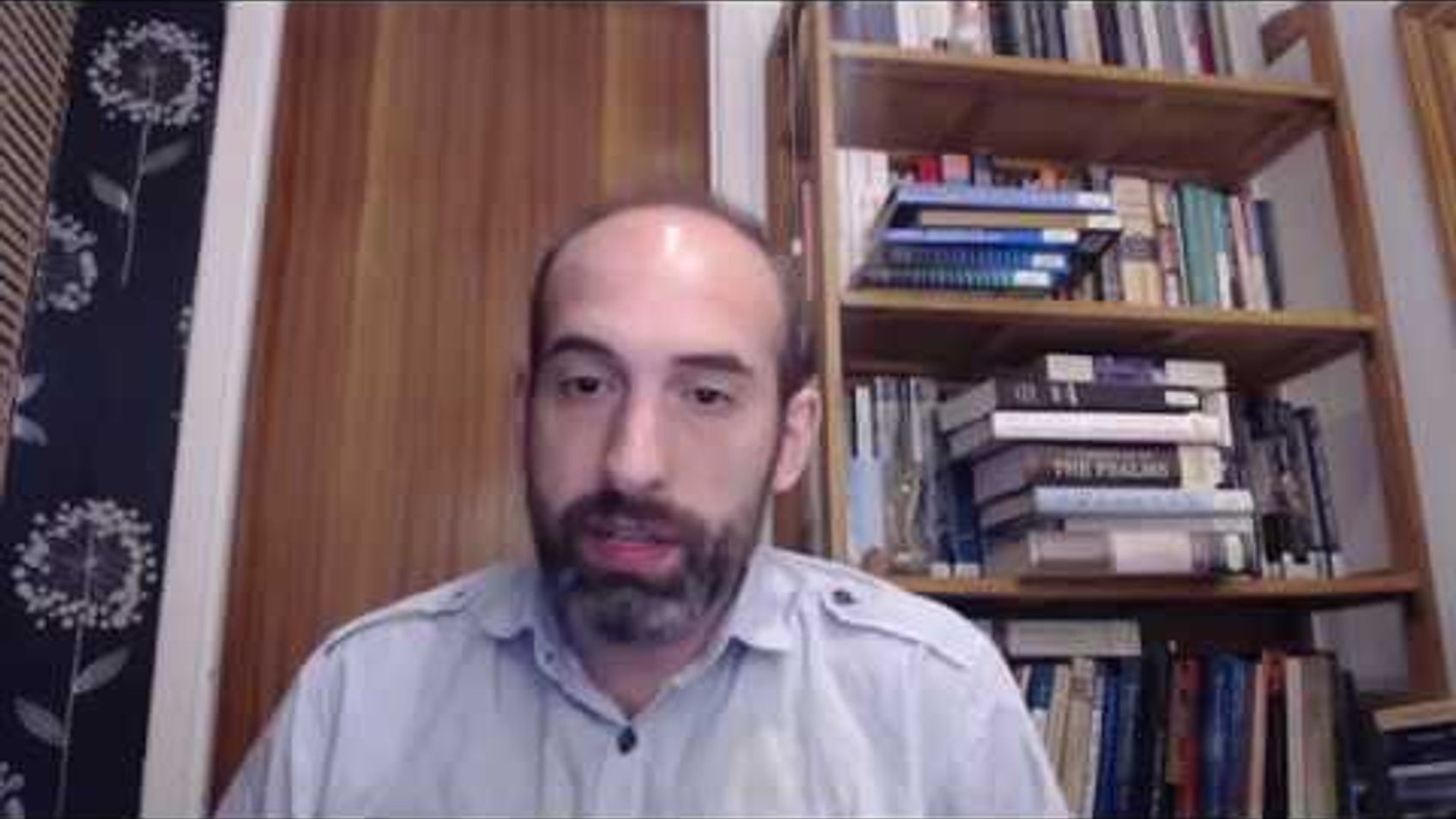Q&A#53 Echoes of the Eucharist?
September 21, 2018

Alastair Roberts
Today's question: "What would be a text that you would go to demonstrate the multifaceted elements of the Eucharist? Can you recommend any books or resources that explore the many symbolic and typological elements of the Eucharist, much like your book on Echoes of the Exodus? Perhaps an echoes of the Eucharist?"
Peter Leithart, 'Blessed Are the Hungry' - https://amzn.to/2DjcBeL.
If you have enjoyed these videos, please tell your friends and consider supporting me on Patreon: https://www.patreon.com/zugzwanged.
My new Soundcloud account is here: https://soundcloud.com/alastairadversaria. You can also listen to the audio of these episodes on iTunes: https://itunes.apple.com/gb/podcast/alastairs-adversaria/id1416351035?mt=2.
More From Alastair Roberts

Q&A#54 The Two Kingdoms
Alastair Roberts
September 22, 2018
Today's question: "Could you say more about the Two Kingdoms theology—especially how it need not fall back into a narrow pietism?"
Brad Littlejohn, '
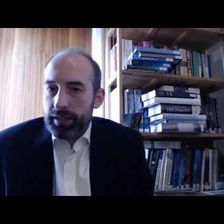
Q&A#55 More on Two Kingdoms
Alastair Roberts
September 23, 2018
Responding to questions raised about this video: https://www.youtube.com/watch?v=nKXN318EZ-g.
Brad Littlejohn, 'The Two Kingdoms: A Guide for the Per
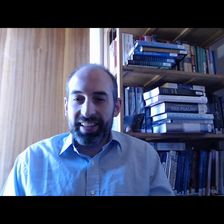
Q&A#56 Paul Maxwell on Masculinity
Alastair Roberts
September 24, 2018
Today I am giving my thoughts on Paul Maxwell's discussion of masculinity here: https://selfwire.org/article/crisis-masculinity-postmodern-age.
If yo
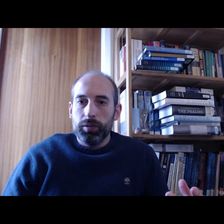
Q&A#52 Does Baptism Save Us?
Alastair Roberts
September 20, 2018
Today's question: "In Q&A#46, you seem to say that baptism (with water) is necessary for salvation. Am I interpreting your perspective correctly, and
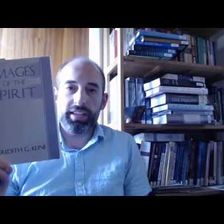
Q&A#51 Ten Stimulating Bible-Related Books
Alastair Roberts
September 19, 2018
Today's question: "What are the ten most stimulating Bible-related books that you have read?"
1. James B. Jordan, 'Through New Eyes' - https://amzn.t
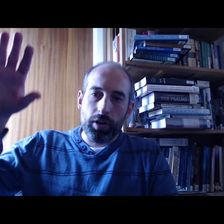
Summary and Discussion of Matthieu Pageau 'The Language of Creation'
Alastair Roberts
September 18, 2018
This is a summary and discussion of Matthieu Pageau's 'The Language of Creation: Cosmic Symbolism in Genesis' - https://amzn.to/2NkGxMa.
If you have
More on OpenTheo

Does God Hear the Prayers of Non-Believers?
#STRask
February 26, 2026
Questions about whether or not God hears and answers the prayers of non-believers, and thoughts about a church sign that reads (as if from God), “Just

Is It a Sin to Feel Let Down by God?
#STRask
November 6, 2025
Questions about whether it’s a sin to feel let down by God and whether it would be easier to have a personal relationship with a rock than with a God

The Heidelberg Catechism with R. Scott Clark
Life and Books and Everything
November 3, 2025
You may not think you need 1,000 pages on the Heidelberg Catechism, but you do! R. Scott Clark, professor at Westminster Seminary California, has writ

Are Demon Possessions and Exorcisms in the New Testament Literal?
#STRask
December 11, 2025
Questions about whether references to demon possessions and exorcisms in the New Testament are literal, how to talk to young children about ghosts, an

Why Does the Bible Teach You How to Be a Proper Slave Owner?
#STRask
November 13, 2025
Question about why it seems like the Bible teaches you how to be a proper slave owner rather than than saying, “Stop it. Give them freedom.”
* It s

Life and Ministry in Charlotte and in the SBC with Clint Pressley
Life and Books and Everything
December 15, 2025
In a rare cultural anomaly that may never be repeated in our lifetimes, the current SBC President and current PCA Moderator live in the same neighborh

Is Greg Placing His Faith in the Wrong Thing?
#STRask
February 12, 2026
Questions about Greg placing his faith in his personal assessment of which truth claims best match reality rather than in the revelation of God in Jes

Why Should We Pray If God Already Knows What’s Going to Happen?
#STRask
January 29, 2026
Questions about why we should pray if God already knows what’s going to happen, how the effectiveness of prayer is measured, and whether or not things

Could the Writers of Scripture Have Been Influenced by Their Fallen Nature?
#STRask
October 23, 2025
Questions about whether or not it’s reasonable to worry that some of our current doctrines were influenced by the fallen nature of the apostles, and h

Can You Recommend Good Books with More In-Depth Information and Ideas?
#STRask
January 22, 2026
Questions about good books on Christian apologetics, philosophy, and theology with more in-depth information and ideas, and resources to help an intel

What Do You Think About Churches Advertising on Social Media?
#STRask
January 19, 2026
Questions about whether there’s an issue with churches advertising on social media, whether it’s weird if we pray along with a YouTuber, and whether C

What Tools of Reasoning Help You Know What’s True, Right, and Good?
#STRask
December 4, 2025
Question about what tools of reasoning help us determine whether something is true or false, right or wrong, good or bad before bringing Scripture int

How Should I Respond to an LGBTQ Person Who Says He Feels Good About Who He Is?
#STRask
March 2, 2026
Questions about responding to an LGBTQ person who says he feels good about who he is, and whether—since we all have sin in our life we don’t consider

Prove to Me That Jesus Is Not a Created Being
#STRask
January 26, 2026
Questions about why we should think Jesus is not a created being, and what it means to say God became fully human if part of being human means not bei

How Can I Explain Modesty to My Daughter?
#STRask
November 27, 2025
Questions about how to explain modesty to a nine-year-old in a way that won’t cause shame about her body, and when and how to tell a child about a pre
